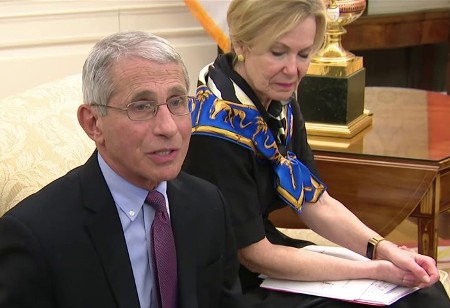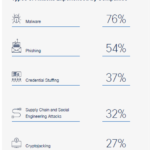April 30, 2020 – When Dr. Anthony Fauci, in front of the media in the Oval Office made the statement that “Remdesivir has a clear-cut, significant, positive effect” in the treatment of coronavirus, my reaction was, “has Trump got him drinking the same Kool-Aid the President has been serving to the public?” In the rarefied atmosphere of the White House, did the scientist allow science to take a backseat when he spoke to the press? It wasn’t the case a few short weeks ago when the President was hyping hydroxychloroquine as the preferred treatment for COVID-19. At least back then, Fauci spoke up. It was good he did because he probably saved hundreds from dosing themselves with a drug known for serious adverse effects including death.
Fauci was no doubt pretty enthusiastic about the results of a Gilead-announced (the maker of the drug), National Institute of Allergy and Infectious Diseases large-scale clinical trial that concluded that patients given Remdesivir saw on average a reduction in their hospital stay from 15 to 11 days. This proved “that a drug can block this virus” stated Fauci. He seemed genuinely impressed by the clinical trial results even though a number of other randomized trials have not been as conclusive showing mixed results with an overall conclusion that there is no statistically significant difference in hospitalization duration for COVID-19 patients whether on Remdesivir or not.
One very positive outcome of Fauci’s enthusiastic endorsement was that the New York stock market index rise 2.4% while Gilead, saw its stock value rise 11% in trading within a few hours yesterday. I wonder who in the Trump cabal had “buy offers” placed the day before Fauci got all enthusiastic about Remdesivir as a treatment for COVID-19.
The history of Remdesivir is an interesting one. Developed to fight Ebola, the drug proved effective in animal-based laboratory studies, but largely was ineffective when given to humans in the field. It was briefly considered for use in experimental treatments for SARS and MERS, but in both cases showed no efficacy in dealing with either coronavirus outbreak.
In baseball, three strikes and you are out. But apparently not in the world of biopharmaceuticals.
The use of Remdesivir for patients with severe COVID-19 is to some degree a break with normal protocol, Testing a drug conceived for an entirely different purpose is often seen as a bit of an act of desperation, a pharmaceutical company seeking almost any way to recover its investment in a drug that has failed to serve the purpose for which it was designed. It appears, however, that physicians treating COVID-19 patients are doing compassionate trials because of the severity of the outbreak with a sense of urgency to reduce the numbers of those dying from the pandemic.
One of Remdesivir trials is reported in the April 29, 2020 edition of The Lancet. A randomized study in ten hospitals in Hubei, China, involved 158 patients given infusions of Remdesivir, while 79 received a placebo. Of the patients on Remdesivir, 66% suffered “adverse events” versus 50% of the patients taking the placebo. Remdesivir infusions were stopped early for 18 of the total. The study reported “no statistically significant benefits…observed for Remdesivir treatment beyond those of standard of care treatment.”
An April 10, 2020 article published in The New England Journal of Medicine, described a trial with 61 patients of which 53 provided results. The trial included patients from the United States, Europe, Canada, and Japan. Thirty were on ventilators, and four were receiving extracorporeal membrane oxygenation (ECMO), a device similar to a heart-lung machine used in cardiac surgery. After 18 days, seven of the patients on Remdesivir died. Improvements were observed in 36 of the patients taking Remdesivir while 8 experienced worsening symptoms. The results varied based on whether a patient was on ventilation or an ECMO, or was on supplemental oxygen, or breathing ambient air. Those on ventilators were the least improved when given Remdesivir. The trial’s conclusions included these words, “to date, no therapy has demonstrated efficacy for patients with COVID-19.”
It is true that the study Fauci was referring to involved more than 1,000 patients, the largest clinical trial to-date using Remdesivir. But even so, these results must be compared to many more randomized, controlled studies before one can credit Remdesivir as being a panacea for treating the virus. It certainly is not a cure, nor a preventive, but it appears, with the hyping by the White House of these latest results, to have become the new gold standard for treatment in the United States, and possibly elsewhere.
















